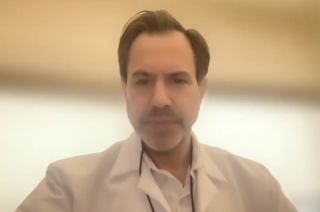
Bladder Cancer
Latest News
Latest Videos

More News

In a phase 3 trial, 72.2% of patients with recurrent low-grade bladder cancer kept complete response at 24 months after Zusduri treatment.

CURE spoke with experts about radical cystectomy, or surgical removal of the bladder, for patients with bladder cancer.

Dr. Janet Kukreja explains one urinary diversion option available to patients undergoing bladder removal.
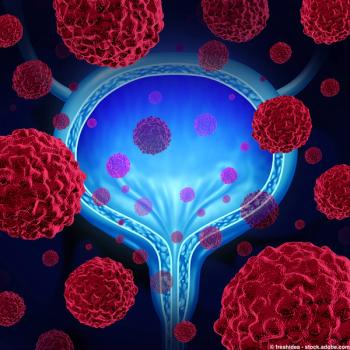
Patients with high-risk bladder cancer reported similar quality of life when treated with sasanlimab plus BCG versus BCG alone, new study data showed.

Treatment with Zusduri had a median duration of response of 3.5 years and event-free survival of two years in low-grade intermediate-risk bladder cancer.
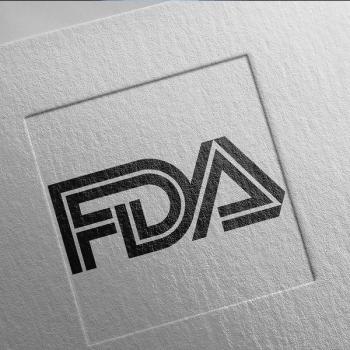
FDA grants priority review to TAR-200, which demonstrated an 82% complete response in high-risk bladder cancer unresponsive to Bacillus Calmette-Guérin.

New clinical trials are advancing in hard-to-treat cancers, offering targeted and less toxic options for patients with limited treatment paths.

Nine years after my bladder cancer diagnosis, I reflect on its recurrence, caregiving, grief, and my new life with leukemia and renewed gratitude.
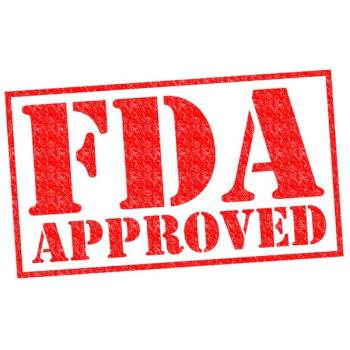
The FDA has granted approval to UGN-102 for use in patients with low-grade intermediate-risk non-muscle-invasive bladder cancer.

Dr. Joshua K. Sabari and Dr. Daniel V. Araujo provide expert insights into genitourinary cancer updates from ASCO 2025.

Adding subcutaneous sasanlimab to BCG improved recurrence-free survival in non–muscle-invasive bladder cancer, according to Dr. Petros Grivas.
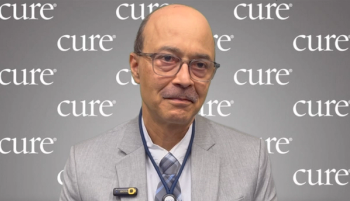
Dr. Guru Sonpavde discusses the CheckMate 901 trial evaluating Opdivo plus Yervoy for those with cisplatin-ineligible, metastatic urothelial carcinoma.

Antihistamines may be associated with survival improvement in patients with metastatic urothelial carcinoma receiving Tecentriq.

Dr. Daniel P. Petrylak discusses the different types of bladder cancer and how treatment options may vary based on disease stage and type.

Dr. Daniel P. Petrylak sits down with CURE during Bladder Cancer Awareness Month to discuss key topics for patients with the disease.

Aidixi plus toripalimab met progression-free and overall survival study end points versus chemo for patients with HER2-expressing urothelial carcinoma.

Treatment with a custom-made vaccine combination was found to be safe and feasible for patients with bladder cancer, eliciting a strong immune response.

Imfinzi plus BCG induction and maintenance therapy showed a statistically and clinically meaningful improvement in DFS for some with bladder cancer.

Bladder preservation for bladder cancer requires balancing clinical factors and patient health with a personalized treatment plan.
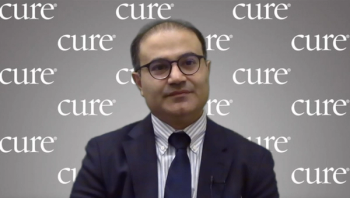
Patient and disease-related factors influence surgical recovery and treatment outcomes after Keytruda and Padcev in advanced urothelial cancer.

Aidixi plus BCG showed strong early efficacy and manageable safety in patients with high-risk, HER2-expressing non–muscle-invasive bladder cancer.

TAR-200 showed high complete response rates in BCG-unresponsive, high-risk non-muscle invasive bladder cancer with CIS in the phase 2b SunRISe-1 study.

Among patients with non–muscle-invasive bladder cancer, neoadjuvant mitomycin demonstrated favorable safety.
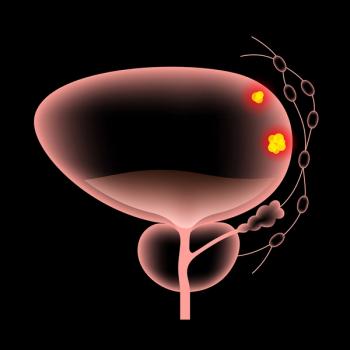
TAR-200 demonstrated a high disease-free survival and bladder preservation rates in BCG-unresponsive, high-risk non-muscle-invasive bladder cancer.

Dr. Matthew Galsky discusses the FDA approval of Imfinzi and chemo before and after surgery for muscle-invasive bladder cancer, based on the NIAGARA trial.













